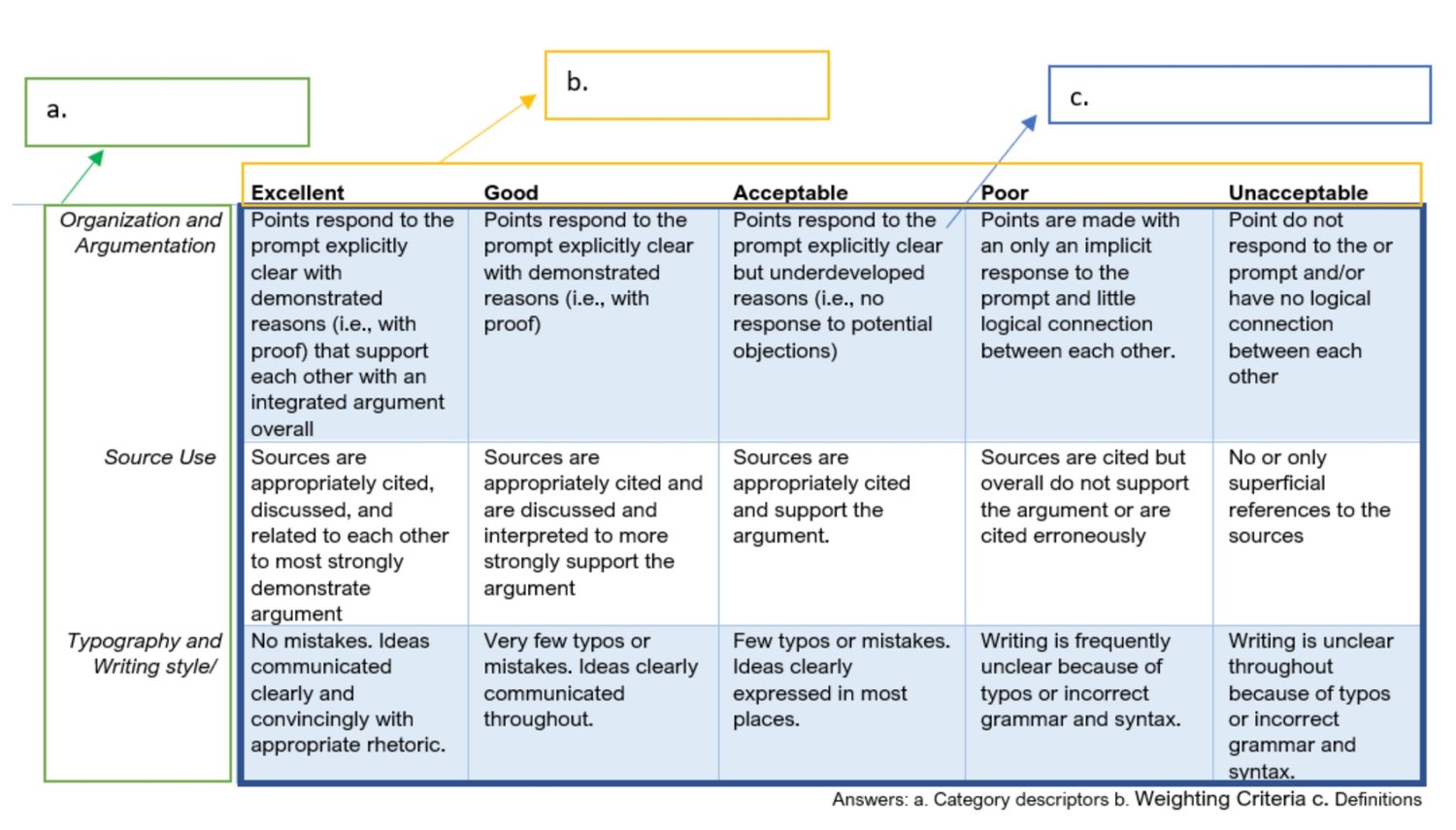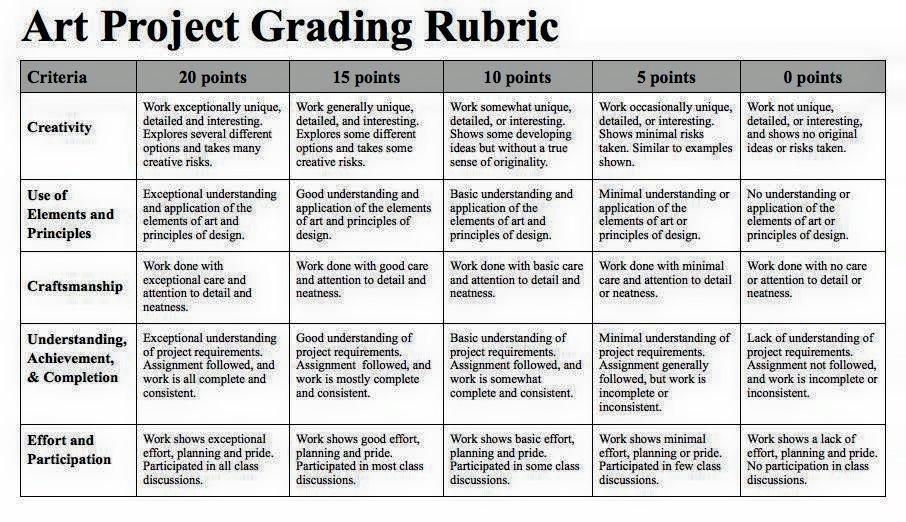What Is The Grading Rubric - Identify the types of grading rubrics with examples, examine the pros and cons of using rubrics, and discover. Rubrics can be used as summative or formative assessment. Rubrics allow reliable scoring to the degree that evaluative language (“excellent,” “poor”) and comparative language (“better than,” “worse. Learn what a rubric is. Used as summative assessment, rubrics give concrete rationale for the grade. In instructional settings, rubrics clearly define academic expectations for students and help to ensure consistency in the.
Identify the types of grading rubrics with examples, examine the pros and cons of using rubrics, and discover. Rubrics can be used as summative or formative assessment. Rubrics allow reliable scoring to the degree that evaluative language (“excellent,” “poor”) and comparative language (“better than,” “worse. In instructional settings, rubrics clearly define academic expectations for students and help to ensure consistency in the. Learn what a rubric is. Used as summative assessment, rubrics give concrete rationale for the grade.
Identify the types of grading rubrics with examples, examine the pros and cons of using rubrics, and discover. Used as summative assessment, rubrics give concrete rationale for the grade. Learn what a rubric is. In instructional settings, rubrics clearly define academic expectations for students and help to ensure consistency in the. Rubrics allow reliable scoring to the degree that evaluative language (“excellent,” “poor”) and comparative language (“better than,” “worse. Rubrics can be used as summative or formative assessment.
Grading Rubric Strategies Office of Digital Learning University of
Rubrics can be used as summative or formative assessment. Identify the types of grading rubrics with examples, examine the pros and cons of using rubrics, and discover. In instructional settings, rubrics clearly define academic expectations for students and help to ensure consistency in the. Used as summative assessment, rubrics give concrete rationale for the grade. Learn what a rubric is.
How To Use Rubrics And Grading Forms Eroppa
Learn what a rubric is. Used as summative assessment, rubrics give concrete rationale for the grade. Identify the types of grading rubrics with examples, examine the pros and cons of using rubrics, and discover. In instructional settings, rubrics clearly define academic expectations for students and help to ensure consistency in the. Rubrics can be used as summative or formative assessment.
Free Printable Rubric Templates [Word, Excel, PDF] Grading & Scoring
Used as summative assessment, rubrics give concrete rationale for the grade. Rubrics can be used as summative or formative assessment. Identify the types of grading rubrics with examples, examine the pros and cons of using rubrics, and discover. Learn what a rubric is. In instructional settings, rubrics clearly define academic expectations for students and help to ensure consistency in the.
Scoring And Grading In Assessment A Complete Rubric Guide, 44 OFF
In instructional settings, rubrics clearly define academic expectations for students and help to ensure consistency in the. Learn what a rubric is. Identify the types of grading rubrics with examples, examine the pros and cons of using rubrics, and discover. Used as summative assessment, rubrics give concrete rationale for the grade. Rubrics allow reliable scoring to the degree that evaluative.
Free Printable Rubric Templates [Word, Excel, PDF] Grading & Scoring
Rubrics allow reliable scoring to the degree that evaluative language (“excellent,” “poor”) and comparative language (“better than,” “worse. Used as summative assessment, rubrics give concrete rationale for the grade. In instructional settings, rubrics clearly define academic expectations for students and help to ensure consistency in the. Rubrics can be used as summative or formative assessment. Identify the types of grading.
5Fold Grading Rubric — CenterForLit Schools
Rubrics can be used as summative or formative assessment. Rubrics allow reliable scoring to the degree that evaluative language (“excellent,” “poor”) and comparative language (“better than,” “worse. Identify the types of grading rubrics with examples, examine the pros and cons of using rubrics, and discover. Learn what a rubric is. Used as summative assessment, rubrics give concrete rationale for the.
Free Printable Rubric Templates [Word, Excel, PDF] Grading & Scoring
Learn what a rubric is. Rubrics allow reliable scoring to the degree that evaluative language (“excellent,” “poor”) and comparative language (“better than,” “worse. Identify the types of grading rubrics with examples, examine the pros and cons of using rubrics, and discover. Rubrics can be used as summative or formative assessment. Used as summative assessment, rubrics give concrete rationale for the.
Grading Rubric — Studio for Teaching & Learning
Rubrics can be used as summative or formative assessment. In instructional settings, rubrics clearly define academic expectations for students and help to ensure consistency in the. Learn what a rubric is. Rubrics allow reliable scoring to the degree that evaluative language (“excellent,” “poor”) and comparative language (“better than,” “worse. Used as summative assessment, rubrics give concrete rationale for the grade.
research proposal grading rubric
Used as summative assessment, rubrics give concrete rationale for the grade. Identify the types of grading rubrics with examples, examine the pros and cons of using rubrics, and discover. In instructional settings, rubrics clearly define academic expectations for students and help to ensure consistency in the. Learn what a rubric is. Rubrics can be used as summative or formative assessment.
Basic Grading Rubric
Used as summative assessment, rubrics give concrete rationale for the grade. Learn what a rubric is. In instructional settings, rubrics clearly define academic expectations for students and help to ensure consistency in the. Rubrics allow reliable scoring to the degree that evaluative language (“excellent,” “poor”) and comparative language (“better than,” “worse. Rubrics can be used as summative or formative assessment.
Rubrics Allow Reliable Scoring To The Degree That Evaluative Language (“Excellent,” “Poor”) And Comparative Language (“Better Than,” “Worse.
Identify the types of grading rubrics with examples, examine the pros and cons of using rubrics, and discover. Rubrics can be used as summative or formative assessment. Used as summative assessment, rubrics give concrete rationale for the grade. Learn what a rubric is.
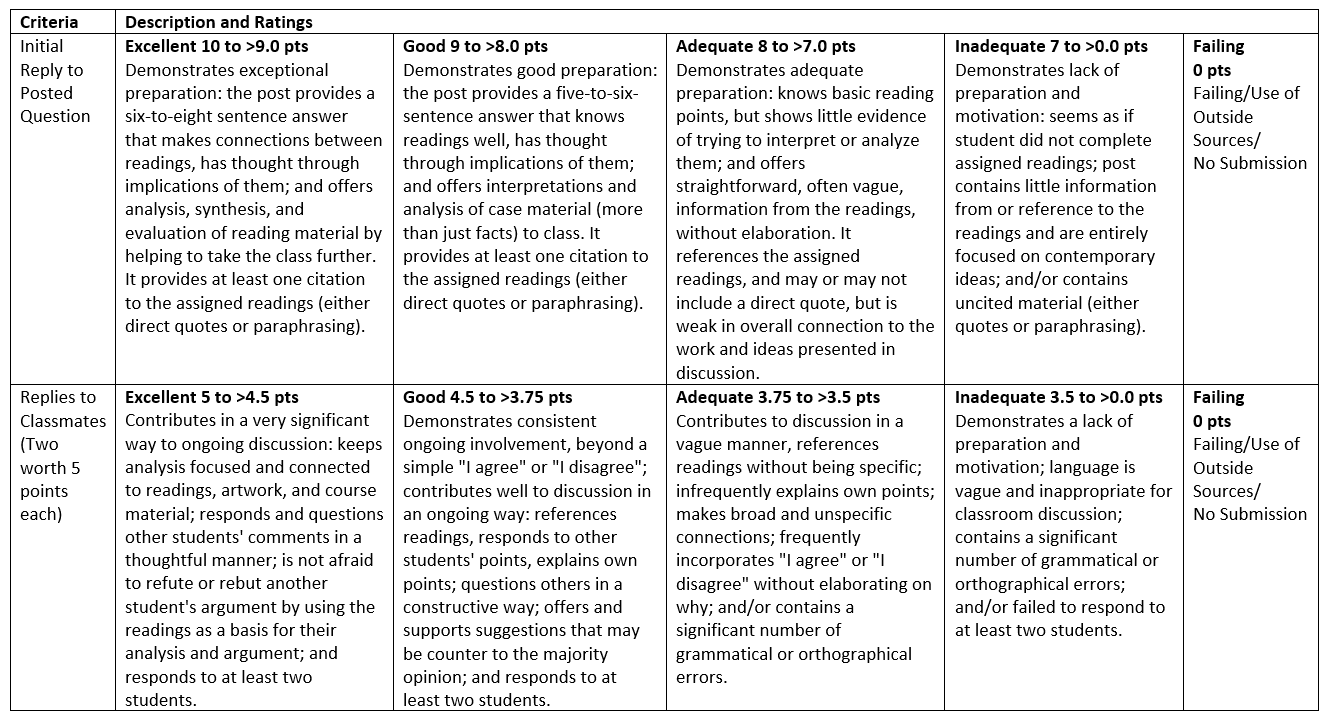
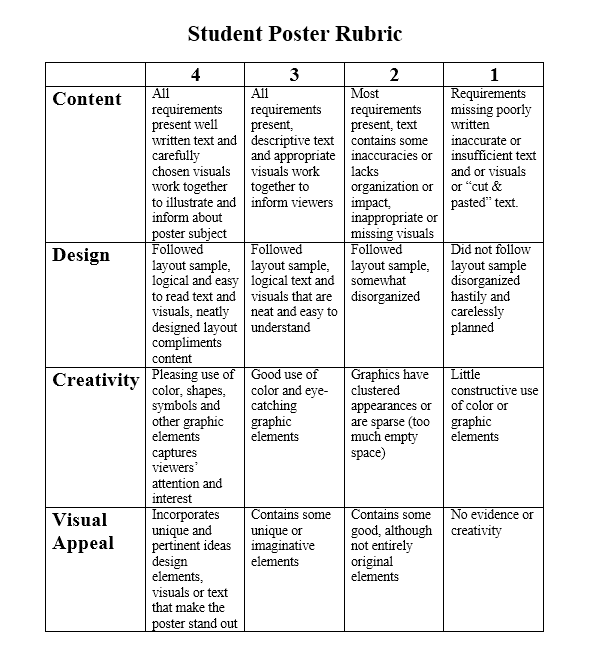
![Free Printable Rubric Templates [Word, Excel, PDF] Grading & Scoring](https://www.typecalendar.com/wp-content/uploads/2023/05/grading-rubrics.jpg?gid=349)
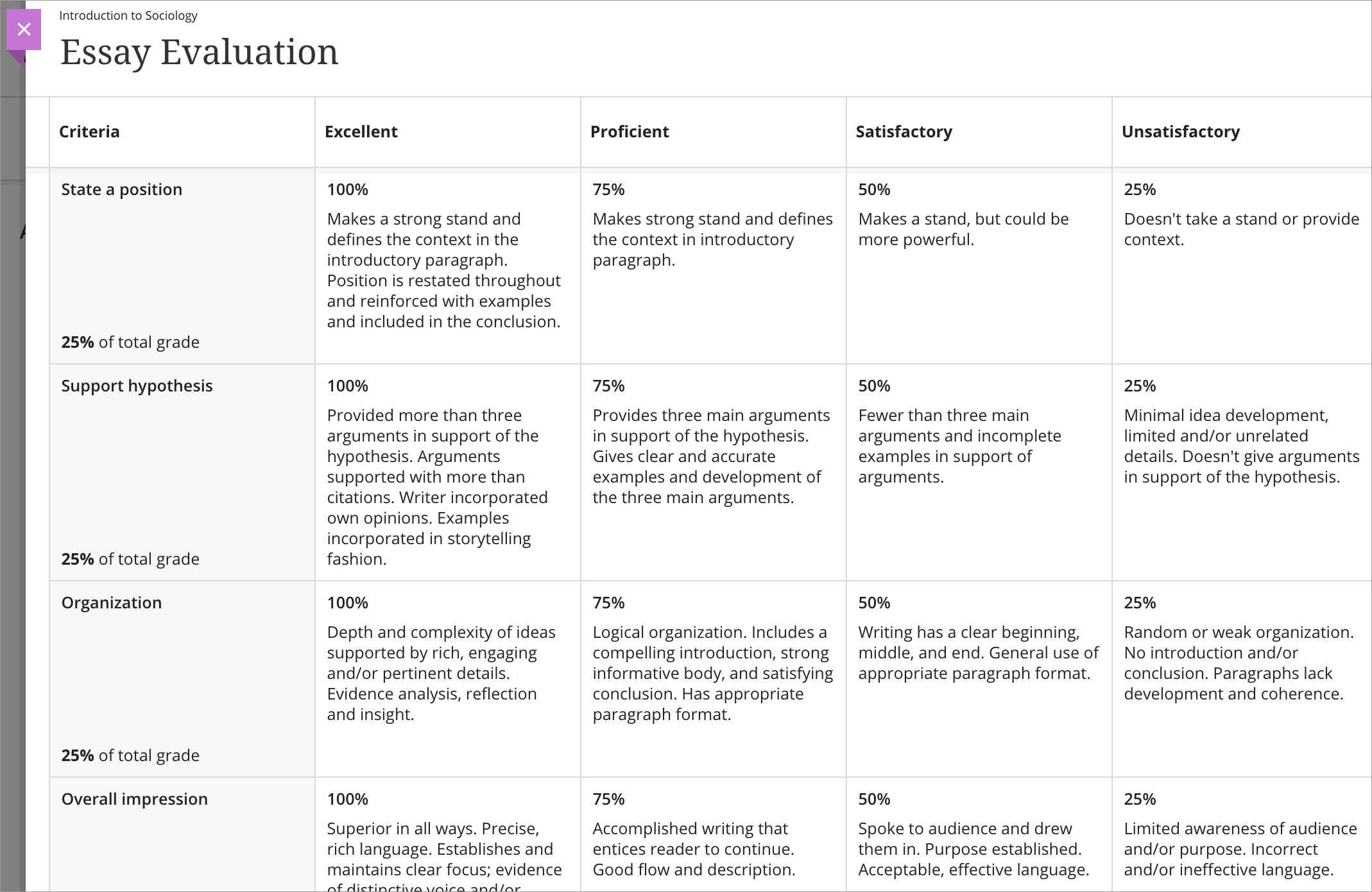
![Free Printable Rubric Templates [Word, Excel, PDF] Grading & Scoring](https://www.typecalendar.com/wp-content/uploads/2023/05/grading-rubric-scale.jpg?gid=349)
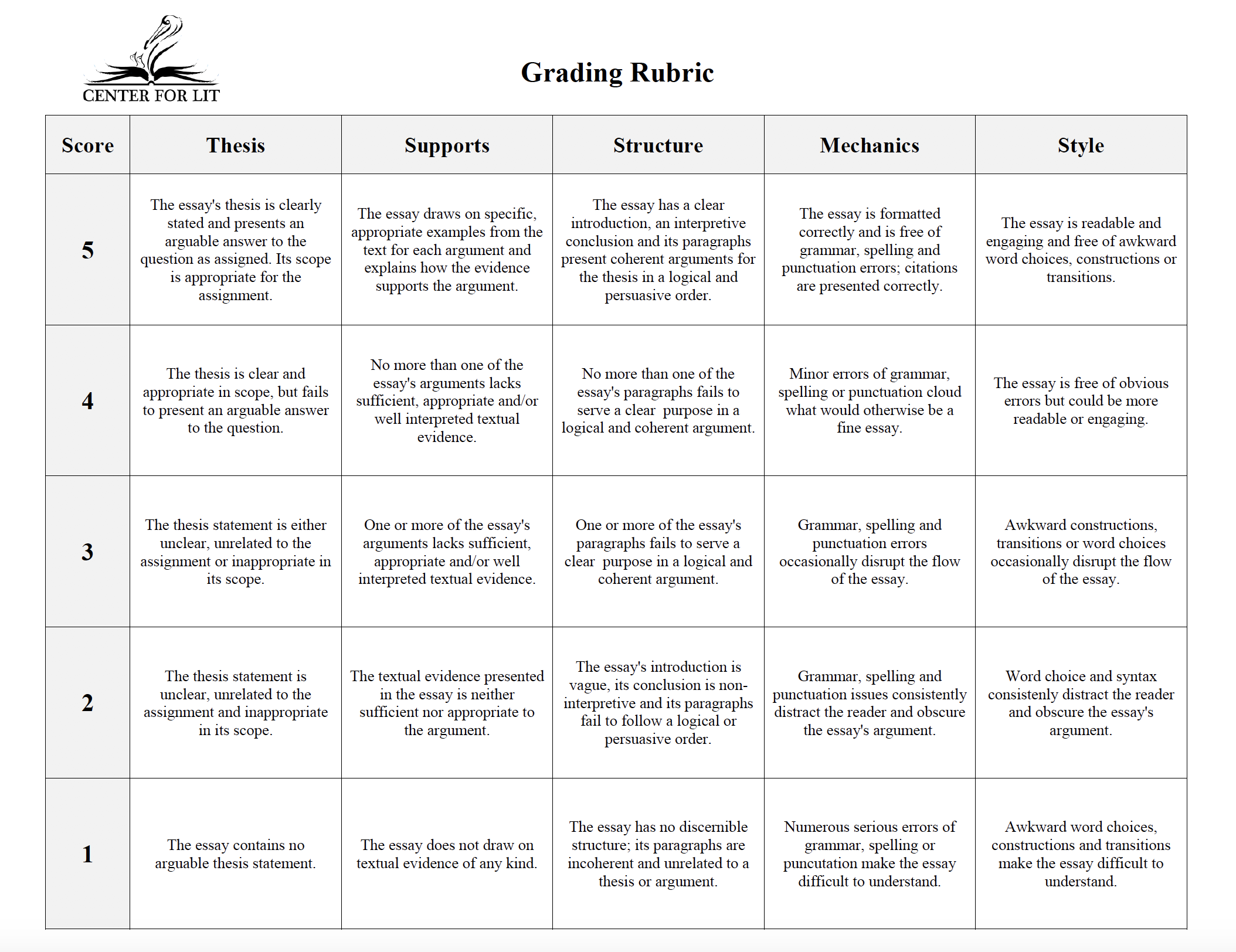
![Free Printable Rubric Templates [Word, Excel, PDF] Grading & Scoring](https://www.typecalendar.com/wp-content/uploads/2023/05/essay-grading-rubric.jpg)
